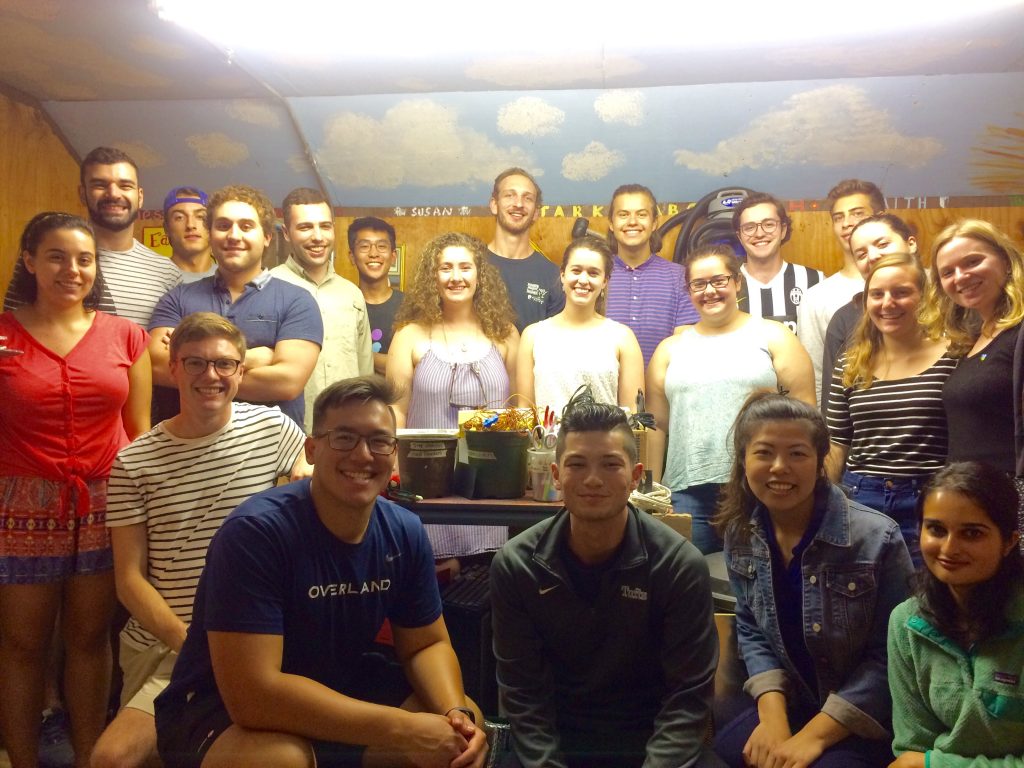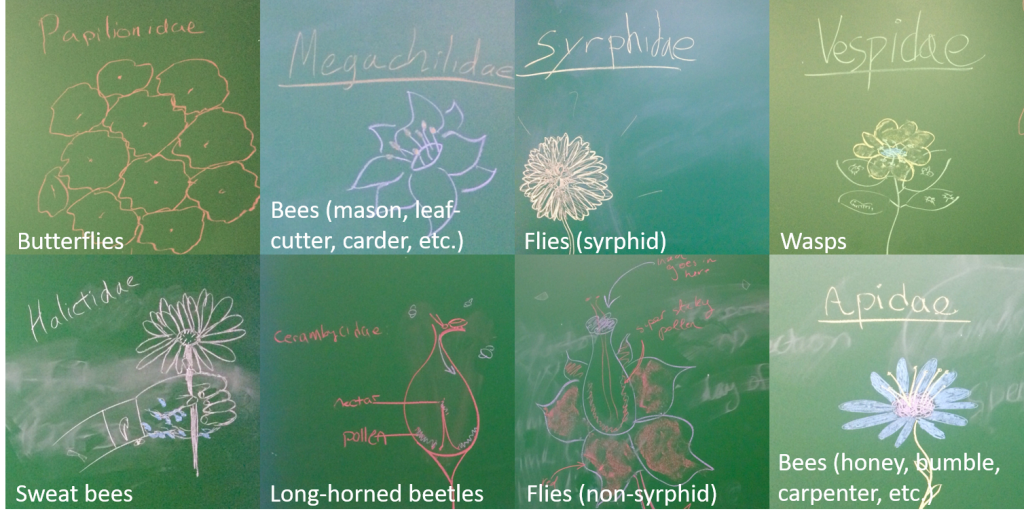
Most of my twenty-two ExCollege students in the Starks Lab “bee hut” on a field trip to see my honey bee hives.
Written by Rachael Bonoan, Biology Ph.D. Candidate
This semester, I have the honor of being one of Tufts Experimental College’s Robyn Gittleman Graduate Teaching Fellows. As a Gittleman Fellow, I got the opportunity to design my own 13-week, undergraduate-level seminar course. And now, I am teaching that course! My course is titled “From Bees to Beetles: Insect Pollinators and Real-World Science,” and is open to students of all majors. I have students who are majoring in English, Psychology, Anthropology, Computer Science, Mechanical Engineering, and more! The diverse perspectives of the students in my class make preparation and teaching challenging, yet rewarding.
In my class, we are learning about more than just honey bees (as the name suggests); we are covering bees, butterflies, flies, and beetles. On the first day of class, each student picked a pollinator species out of a hat and was tasked with researching and presenting on the natural history of their pollinator. Now halfway into the course, we have learned about pollinator ecology, coevolution, and tonight, we will be learning about pollinator nutritional ecology (which is my specific area of PhD expertise, so I am extra excited!). In the final third of the course, students will be able to put what they’ve learned to the test and design a pollinator protection plan tailored to the pollinator they picked at the beginning of the semester.
One of the biggest challenges I find when preparing my lectures is figuring out the balance of “science.” This course is for both STEM and non-STEM majors, so I must make sure the science is clear. Also, this course counts as a distribution credit for the natural sciences, so I must make sure the science is accurate. Preparing these lectures has been great practice for talking to the public about my research and broad science topics in general (such as evolution). I push myself to define jargon, explain methods, and decode statistical analyses for someone outside of my field.
Another challenge I face is knowing when to stop prepping. As a fifth-year graduate student, I am writing my thesis. Oftentimes, I find preparing for class a bit more fun than editing a paper I’ve been staring at for months; it’s easy to get sucked into coming up with elaborate discussion questions and perfecting my slides. To deal with this, I am strict with myself about blocking out time for writing and time for preparing lectures/discussions, and sticking with it.
Although this is my first time designing my own course, and independently teaching, I’d say things are going smoothly so far. As a Gittleman Fellow, I get to meet with Howard Woolf, the director of the ExCollege, and the other Gittleman Fellows every other week. We discuss lesson planning, grading, and facilitating discussions. As a first-time teacher, this is a great sounding board for new ideas and group activities that may/may not go as planned. Overall, the students are engaged, and teaching is a blast! Sometimes I am having so much fun teaching and leading discussions that I forget to give the students a break during the two-and-a-half-hour time slot (something I’m working on).
I am only about halfway through the semester, but so far teaching in the ExCollege has been extremely rewarding. Aside from gaining valuable teaching experience, I am helping students to take a moment and observe the natural world. One Monday night, a student told me about a hike he went on over the weekend. On his hike, he noticed various insects that he would have completely overlooked before taking my class.
After learning about coevolution, students applied what they know about their own pollinators to create the “perfect flower” for various groups of pollinators.

